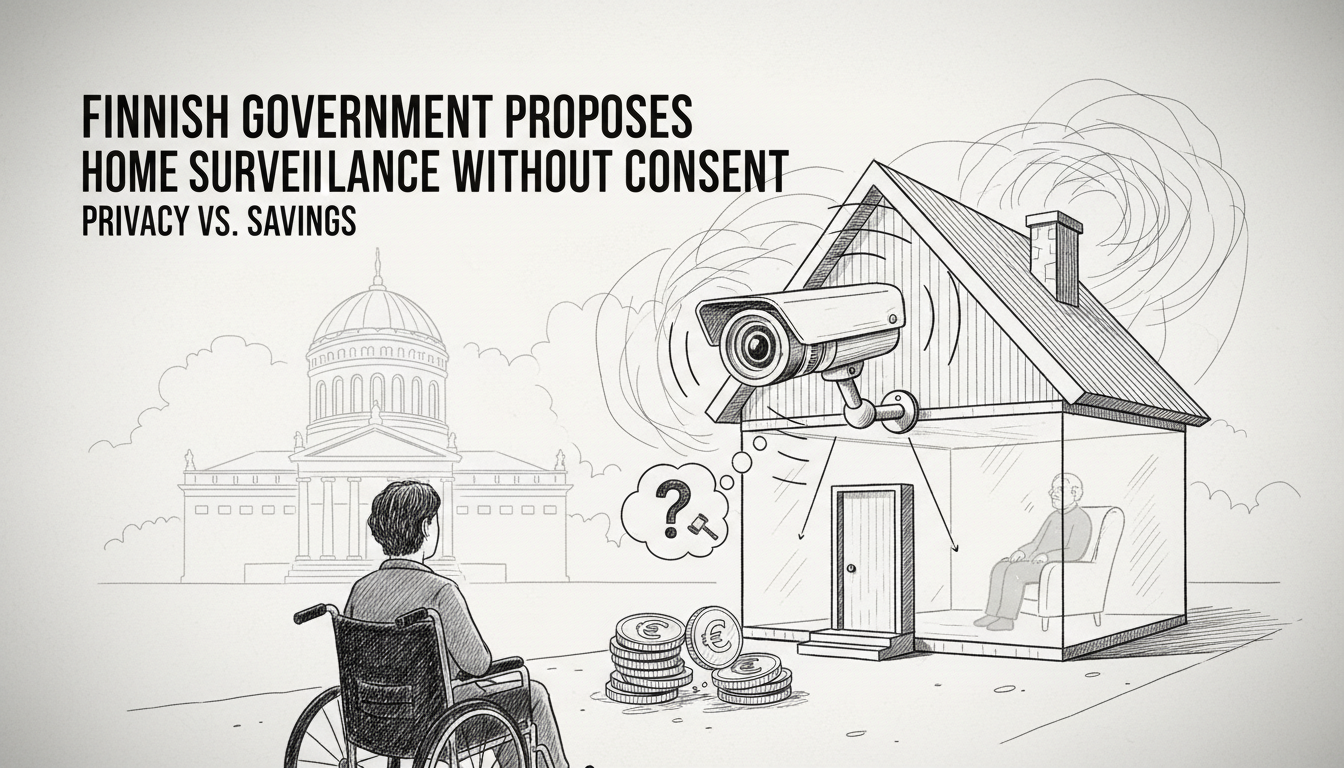Finland's coalition government wants to install surveillance cameras in private homes without consent in some cases. The proposal targets elderly care facilities and child protection institutions. It would also extend to clients' private residences under certain circumstances.
Prime Minister Petter Orpo's government submitted the legislation in late September. Social Affairs and Health Minister Kaisa Juuso also signed the proposal. The government argues the changes would increase technology use in social care.
Officials estimate the surveillance measures could save over 50 million euros annually. These savings would come from reduced funding for welfare regions. The proposal currently awaits parliamentary review.
A senior ministry official acknowledged the consent issue has generated strong opinions. Constitutional protections for privacy and home security conflict with rights to necessary care, according to the official's statement.
The constitutional law committee must review the proposal before parliament votes. This ensures the legislation aligns with Finland's strong privacy protections.
Finland maintains some of Europe's strongest privacy laws. The country values personal privacy and home security as fundamental rights. This makes the surveillance proposal particularly controversial.
Similar debates occurred when Sweden introduced camera monitoring in elderly care. Nordic countries balance technological efficiency with personal freedoms differently. Finland's approach typically emphasizes privacy protection.
The proposal reflects broader European trends toward digital care solutions. Many countries struggle with aging populations and care worker shortages. Technology offers potential cost savings but raises ethical questions.
International observers watch Finland's privacy decisions closely. The country often sets standards for digital rights in Europe. This case could influence similar debates across the continent.
Expats and digital nomads in Finland should monitor this development. It could affect privacy expectations for all residents. The outcome may influence Finland's reputation as a privacy-conscious society.
Care recipients and their families face difficult questions about safety versus autonomy. Surveillance might prevent abuse but reduces personal freedom. Finding the right balance requires careful consideration.
The parliamentary review process will likely take several months. Committee hearings will feature expert testimony and public debate. Finland's tradition of transparent lawmaking means thorough discussion ahead.

